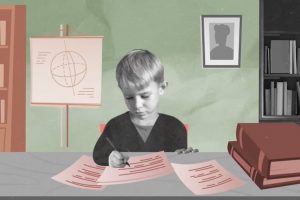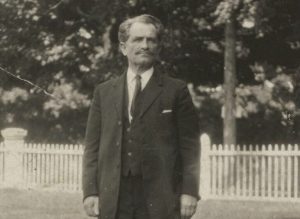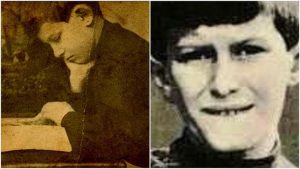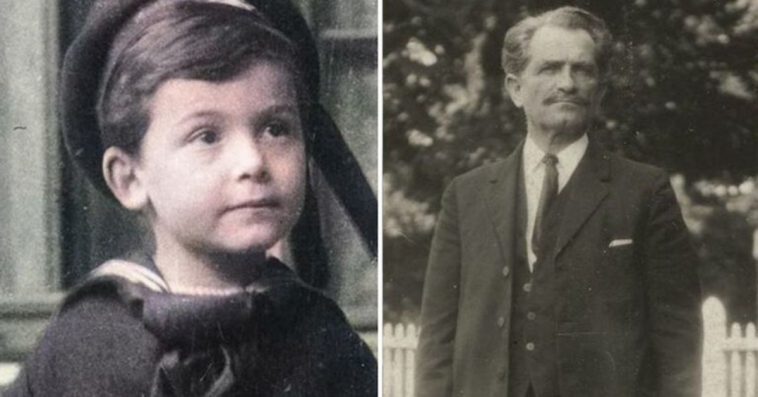William Sidis was pushed by his father to write four books by the time he was eight, but Harvard wouldn’t let him enroll until he was eleven.
Former child prodigy William Sidis passed away on July 17, 1944, at 46.
When Sidis enrolled at Harvard College at age 11, he had already gained fame. A year later, he was lecturing to the school’s mathematics club on the subject of “four-dimensional properties.”
Bill Sidis had extraordinary skills, which were channeled by his parents from an early age towards what were meant to be useful academic activities, even if his sister might have overstated when she claimed after his death that he had the highest IQ in the history of intelligence testing.
Sidis, however, responded poorly to the overwhelming public scrutiny he experienced. Even though he was academically engaged throughout his childhood, he prioritized maintaining his anonymity. He avoided anything that was particularly demanding as an adult.
Abnormal Psychology And High IQ

Photo Credits – BRIGHT SIDE / YouTube
William James Sidis was born in New York on April 1, 1898; his name is Sy-dis. After serving a two-year sentence in czarist Russia for giving reading instruction to peasants, his father, Boris Sidis, born in Ukraine, immigrated to the United States in 1887.
His mother, Sarah Mandelbaum, had also been born in Russia and had immigrated to the United States in 1889 when she was just 13 years old and had survived a pogrom.
Both parents had superior intelligence and ambitions. In three years, Boris graduated from Harvard University with his bachelor’s and master’s degrees. Then, after graduating from medical school, he worked as a psychiatrist focusing on abnormal psychology.
He and Sarah first met when he was teaching English. He inspired Sarah to enroll at Boston University’s medical school, making her one of the institution’s first female students.
William, named after the psychologist William James, a friend of his father, had unusual abilities at a young age. At six months, he said his first word; at the age of one and a half, he was reading the New York Times.
By the time he was three years old and had learned how to write, he had sent a letter to Macy’s purchasing toys. By age eight, he had mastered Latin, Greek, German, Russian, Hebrew, Turkish, French, and Armenian. He had also created his virtual language, which he dubbed Vendergood.
Between the ages of six and eight, he published four books, including studies of anatomy and astronomy, as well as his grammar for Vendergood.
All of this was accomplished under his father’s guidance, who was determined to show that a child’s intellect could be developed.Although Harvard would have accepted him as a special student even at the age of eight, Boris wanted his kid to start college when he was only eight years old.
The Perfect Life

Sidis made the mistake of telling reporters after he graduated in 1914 cum laude that he wanted to live the “perfect life,” which he stated would include being celibate as he had no interest in women.
Sidis did fall in love later after he had had a miserable year as a graduate mathematics student and lecturer at the Rice Institute (later university) in Houston. They spent almost three years at Harvard Law School before quitting unexpectedly close to graduation.
He decided on Martha Foley, a vivacious young woman. A socialist march on May Day in 1919 brought the two together when they were both imprisoned.

After the two had relocated to New York, he maintained his connection with Martha for a while. Still, in the end, she married Will Burnett, the editor with whom she co-founded Story magazine. Regular readers of this column may remember Will from yesterday’s piece about the literary career of J.D. Salinger.
Sidis spent his latter years as a bookkeeper in Boston and New York, changing jobs anytime someone recognized him from his days as a well-known kid prodigy. (He unsuccessfully sued The New Yorker for invasion of privacy after they located him and ran a “Where Are They Now?” piece on him.)
He published several books, including ones on astronomy, streetcar transfers, and the history of human colonization in the Americas, which were particularly interesting to him.His father died from a brain hemorrhage in 1923 when he was 56 years old, and he, too, passed away on the same day in 1944.


